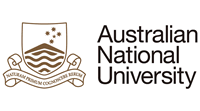Dr Fiona Beck
No more applications being accepted
Competition Funded PhD Project (Students Worldwide)
About the Project
Nanophotonics is the study of the interaction of light with nano-scale structures. Such structures can squeeze light into volumes much smaller than the diffraction limit and produce highly concentrated optical fields. Additionally, the response of the structure to polarisation or wavelength can be sensitively tuned by changing the physical geometry, allowing us to exquisitely control the optical resonances of nanophotonic devices.
The application of nanophotonics to photocatalysis is an exciting extension in the field, offering the opportunity to leverage the control of light on the nanoscale to selectively drive reactions that would not be accessible without highly concentrated optical fields [1,2]. The applications of photochemistry include critical processes such as solar fuel generation, air and water purification, and hazardous waste remediation.
This project will contribute to the understanding and development of the next generation of nanophotonic photochemistry concepts. We are seeking Candidates to work within an interdisciplinary research group, with expertise in hot-electron science and plasmonics [3], and photoelectrochemistry [4] to investigate underlying physical mechanisms and develop prototype devices.
The project will be based at the Research School of Electrical, Energy and Material Engineering at the Australian National University (ANU), which plays host to research leaders in a variety of relevant fields. In particular, the Energy researchers at ANU have established an international reputation in the development and advancement of solar energy technologies, with world-leading expertise and facilities for device design and fabrication, and advanced characterisation. ANU also hosts the Australian National Computational Infrastructure, giving researchers access to state-of-the-art computational resources.
The Australian National University (ANU), is one of the top universities in Australia and was ranked 24th globally in the 2019 QS World University Rankings.
The candidate will be supported though the competitive Australian National University PhD Scholarship round by Dr. Fiona J Beck: https://eeme.anu.edu.au/people/fiona-j-beck
Successful Candidates will be provided with:
• A tax-free scholarship
• Support for international conferences travel and research visits
• World-class project supervision in a dynamic, interdisciplinary environment.
• Access to nanofabrication facilities and state of the art characterisation techniques
• Access to world class computational resources
The deadline for scholarship application is 31st August 2019. More information is at the link below: http://www.anu.edu.au/students/scholarships-support/anu-university-research-scholarships
Interested candidates should send the following to Dr Fiona J Beck at: [Email Address Removed], preferably before August 15th:
• A brief CV, including details of awarded degrees, academic prizes, research experience, publications, and other any other relevant achievements
• A one page cover letter including a statement of research interests and why you want to do a PhD in this area
Funding Notes
Applicants should hold a first class Honours degree or Master's degree in Physics, Material Science, Engineering, or Physical Chemistry and must meet the ANU English language requirements. Women and Australian Aboriginal and Torres Strait Islander people are particularly encouraged to apply. Applicants are encourage to self-assess their eligibility for entry into a Higher Degree by Research program at the ANU by following the link below:
https://cecs.anu.edu.au/study/graduate-research
The deadline for scholarship application is 31st August 2019. More information is at the link below: http://www.anu.edu.au/students/scholarships-support/anu-university-research-scholarships
References
[1] Linic, S.; Aslam, U.; Boerigter, C.; Morabito, M. Photochemical Transformations on Plasmonic Metal Nanoparticles. Nat. Mater. 2015, 14 (6), 567–
576. https://doi.org/10.1038/nmat4281.
[2] Shi, X.; Ueno, K.; Oshikiri, T.; Sun, Q.; Sasaki, K.; Misawa, H. Enhanced Water Splitting under Modal Strong Coupling Conditions. Nat.
Nanotechnol. 2018, 13 (10), 953–958. https://doi.org/10.1038/s41565-018-0208-x.
[3] Beck, F. J. Plasmonic hot-electron technologies for nanoscale energy conversion https://eeme.anu.edu.au/research/research-projects/plasmonic-
hot-electron-technologies-nanoscale-energy-conversion.
[4] Catchpole, K. R. Solar fuels by water splitting https://eeme.anu.edu.au/research/research-projects/solar-fuels-water-splitting.

 Continue with Facebook
Continue with Facebook

